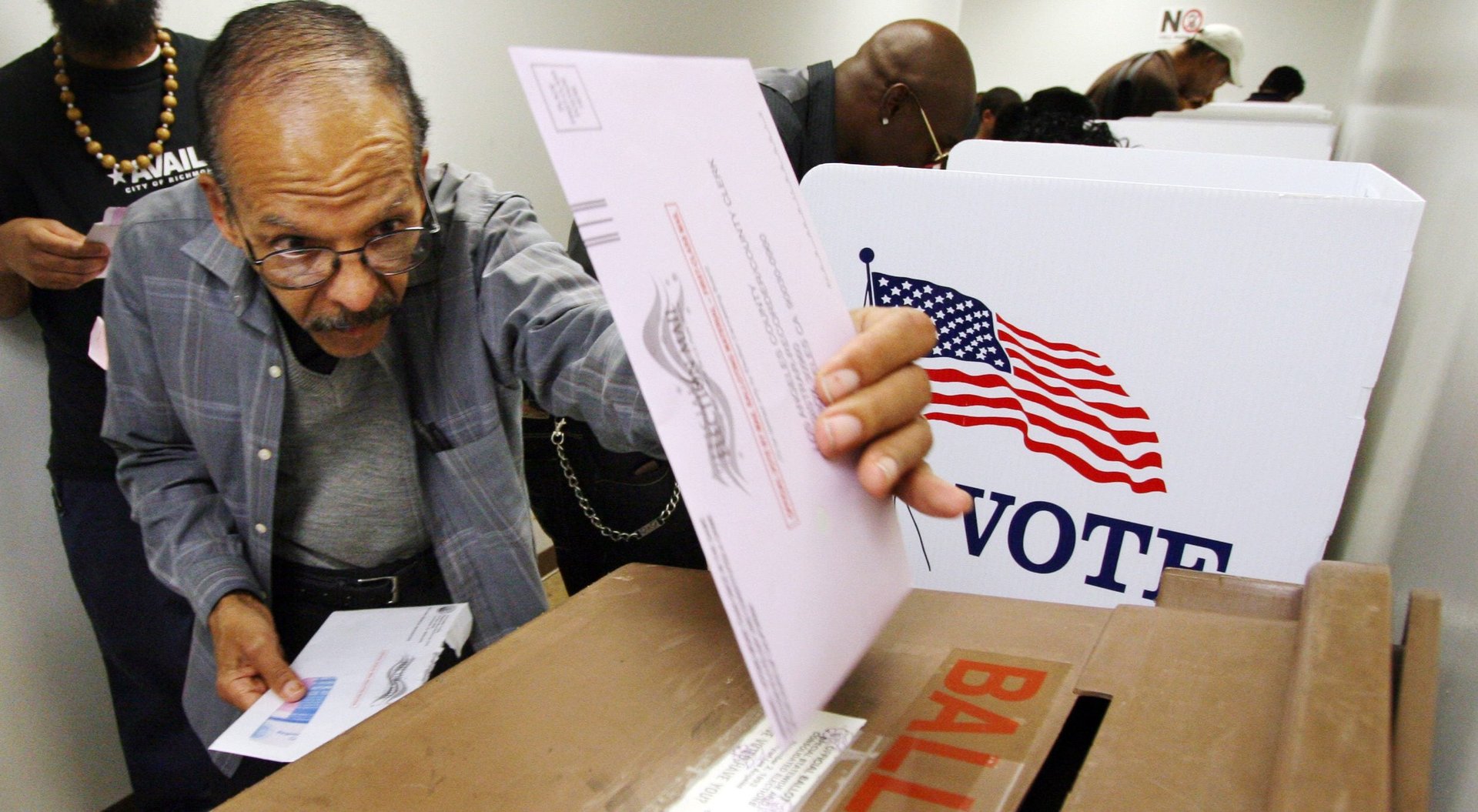Rigged? There is (almost) nothing new about this election’s conspiracy theories
In March 2011, discussing a possible presidential bid for the 2012 election with Good Morning America aboard his private plane, Donald Trump discussed Barack Obama’s childhood. “Growing up no one knew him,” he said. ”The whole thing is very strange.”


In March 2011, discussing a possible presidential bid for the 2012 election with Good Morning America aboard his private plane, Donald Trump discussed Barack Obama’s childhood. “Growing up no one knew him,” he said. ”The whole thing is very strange.”
What he was expressing concern for wasn’t that the president had a lonely childhood, but rather that Obama wasn’t born America—and his election, therefore, had not been legitimate under the second article of the Constitution, which demands that the president be born on US soil.
We know Trump was wrong. But by becoming the de-facto spokesperson for a birther movement that had lived on the fringes of the right (and perhaps beyond) since the 2008 elections, Trump gave his well-known face to an electoral conspiracy theory, something he has kept going since—first as a laughable Twitter troll, then as a terrifying candidate, and finally, at the end of a tight race to win the White House.
While he no longer objects that Obama was born in America (“President Barack Obama was born in the United States. Period,” he admitted on Sep. 16), Trump is now preoccupied with another conspiracy around this election: it’s rigged.
“I am afraid the election is going to be rigged. I have to be honest,” he said in Ohio in early August, and repeated later. His first general election ad, too, suggested the same, by craftly superimposing the words “system rigged” over a voting ballot sign. On his site, a call for volunteer election observers reads “Help Me Stop Crooked Hillary From Rigging This Election!”
Hillary Clinton, too, has openly entertained doubts about the election’s fairness. “We are facing a very serious concern. We’ve never had a foreign adversarial power be already involved in our electoral process, with the DNC hacks,” she said in early September. Her statement isn’t about the voting being rigged, nor that the counting will be unreliable, but rather talks about Russia’s support of Trump, perhaps hinting to another conspiracy theory of this election: that Trump’s campaign be supported—fueled even—by Russia.
“Welcome to the conspiracy theory election,” titled Newsweek. “The Conspiracy Theorists’ Election,” said The New York Times. “Welcome to the Trump-Clinton conspiracy election,” wrote The Associated Press.
This election seems dotted with conspiracy theories in a way that feels unprecedented—but it’s actually quite normal.
“I don’t think that conspiracy theories are getting stronger in America,” Jesse Walker, who authored the book The United States of Paranoia: A Conspiracy Theory, told Quartz.
During the elections, he says, people are more drawn to these theories because “in the broader sense of the word, elections are full of conspiring:” strategies, moves, plans—like in every battle, a lot is secretive. And so ”it is not unusual that really committed supporters [of a candidate] are convinced that the system is rigged against them,” he said, explaining that typically “these are narratives that take form within the campaign at a grassroot level.”
It is not unusual, either, for conspiracies to question that the counting of votes may be unfair, as Trump is suggesting. The allegations that the election had been “stolen” by George W. Bush, though rigging the ballots in Ohio in 2004, and through fixed voting machines in 2000, are recent examples.
Walker says that there is a place for legitimate concerns about ensuring the fairness of an election and protecting the counting of votes, but outright accusations of rigging are usually a way for staunch supporters looking for an excuse for a losing candidate. Which is why in very close elections, such as between Bush against Al Gore in 2000 and John F. Kennedy against Richard Nixon in 1960, the losing candidates conceded the election.
And this is where this election is different—where Trump is different.
While candidates leave conspiracies and accusations linger in the subtext, or have surrogates bring them up, Walker says, “Trump is more willing to have things come out of his mouth, he is more likely to make the subtext text.” Trump, he says, acknowledges and is shameless about things that other candidates, or public figures, would consider outrageous—and accusations of electoral ploys are no exception.
But does saying that the election may be rigged mean Trump would follow suit, and not concede the victory to his opponent, were that the result?
Walker doesn’t think so. “My suspicion is that Trump’s underlying motivation [for rigged election accusation] is he is the kind of person who likes to come up with an excuse,” he says.